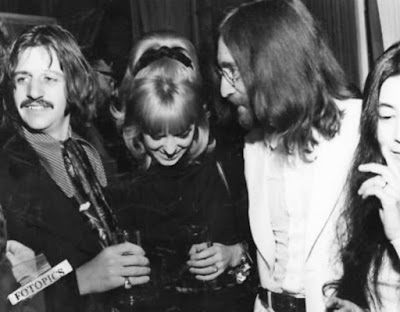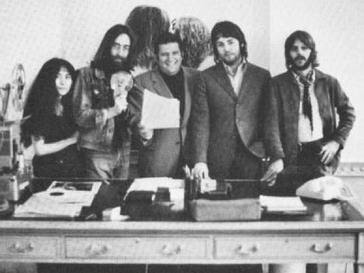I was inspired by a podcast called The 500 hosted by Los Angeles-based comedian Josh Adam Meyers. His goal, and mine, is to explore Rolling Stone's 2012 edition of The 500 Greatest Albums of All Time.
Album # 392
Album Title: Let It BeArtist: The Beatles
Genre: Rock
Recorded: 1968-1970 Apple, EMI, Twickenham Studios
Released: May, 1970
My age at release: 4
How familiar was I with it before this week: Very
Song I am putting on my Spotify Mix: Two of Us
 |
| Let It Be Album Cover - The Beatles (1970) |
It is a testament to a band's greatness that a record forged in frustration, resentment, addiction, skepticism and even abandonment would find its way to The 500 Greatest Albums list. Such is the case with Let It Be, the twelfth and final studio release from The Beatles.
In 1969, the glue that had kept the four Liverpool lads together for the previous nine years was beginning to come undone. Each member was now married, or in a relationship. They were exhausted from touring and, by 1967, had resigned themselves to be a "studio-only" band. Ringo and John were both battling addictions -- heroin for John and a combination of alcohol and cocaine for Ringo.
George had "left" the group, not formerly but certainly mentally and emotionally. A visit to the United States and time spent with Bob Dylan had helped him realize that music could be created communally. This was in contrast to the domineering style of Lennon and McCartney, who controlled most of the songwriting and the group's creative direction.
 |
| Harrison and Dylan (1968) |
In a final bid to help the band members bond again, Paul proposed that a film crew document their rehearsals and song-writing sessions. It was his hope that this would revive the positive energy of live performances without the tedium of touring. The experiment was short-lived and the experience was filled with acrimony. Harrison's suggestions were, again, ignored. Consequently, much of the material he wrote later appeared on his first solo album, All Things Must Pass (#433 on The 500 List). Clearly, this demonstrated that there was quality in Harrison's work.
Interestingly, many of the song ideas work-shopped by Lennon and McCartney would also appear on their solo efforts. It was clear that all of the members were in Beatle-break-up-mode. Lennon, deep in heroin addiction, was always flanked by his partner, Yoko Ono -- who is often blamed (unfairly) with breaking up The Beatles. Lennon was a shell of his former self and prone to loud arguments -- most often with Harrison.
 |
| John and Yoko (1969) |
The Beatles would not officially dissolve for another year due to financial obligations. The recordings from these sessions, and their live performance on the rooftop of Apple Studios, eventually found their way to sound engineer Phil Spector who overhauled the songs, adding his own orchestrations.
As Lennon put it:
"Phil was given the shittiest load of badly recorded shit, with a lousy feeling to it, and he made something of it."
Despite all of this, the record was a commercial hit, going to number one on the charts. However, critical reviews were mixed in 1970 but over time it has been acclaimed and several songs have become Beatles' classics. In 2003, McCartney remastered the record and released it under the moniker Let It Be...Naked. This alternative mix removed Spector's embellishments and captured, according to McCartney, "the stripped-down aesthetic" intended by the group.
 |
| Let it Be...Naked album cover (2003) |
As a teenager, I owned a copy of the original LP on vinyl and was unaware of the backstory behind it. I knew it was their last release and, like many, blamed Yoko for the group's dissolution. It was easy to make her a scapegoat without understanding that group dynamics are complex, particularly when creative frustrations and addictions are involved.
I had a tough time deciding what to put on my Spotify "The 500 Playlist". In the end, I settled on Two of Us because of a lyric that always makes me think of my wife.
"The two of us have memories, longer than the road that stretches out ahead."
Like all great poetry, it is a line that resonates with me, creating powerful and conflicting emotions. I wistfully reflect on 34 years with a beautiful lady who adores me, while being reminded that we'll share a limited time on the road ahead.




No comments:
Post a Comment